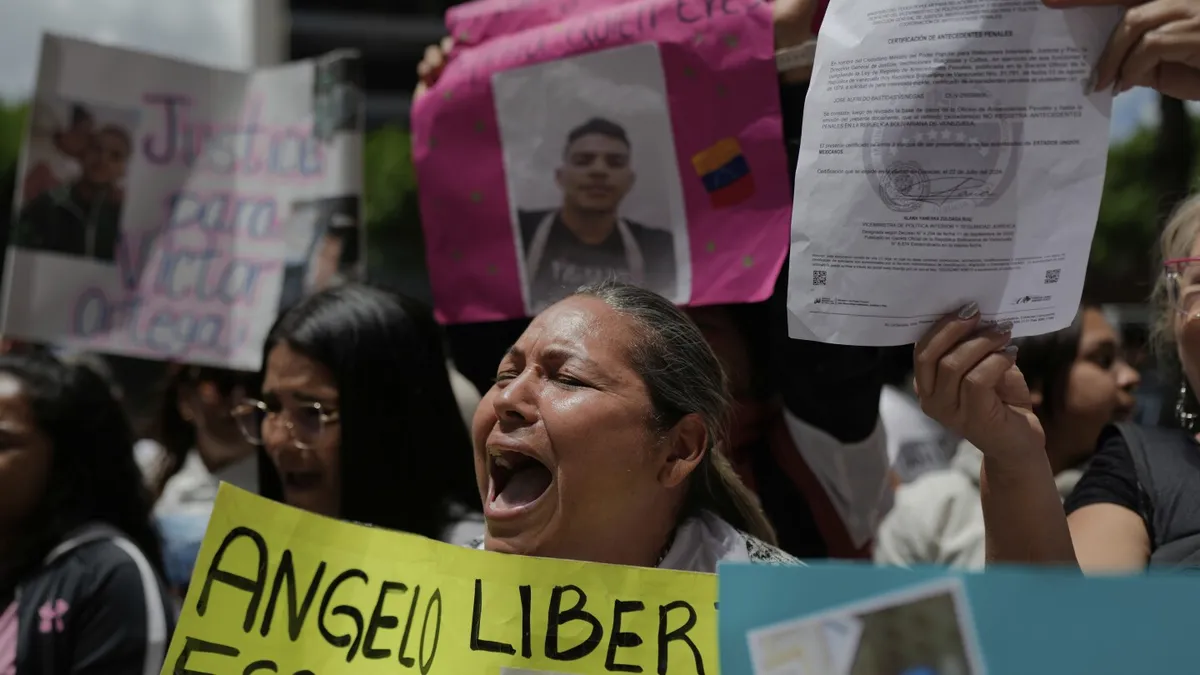
The U.S. intelligence community has released a newly declassified memo that challenges the assertion made by former President Trump regarding Venezuelan President Nicolas Maduro and his alleged control over the Tren de Aragua (TDA), a notorious criminal gang operating within the United States. This memo, which has been redacted for sensitive information, contradicts Trump's claims that Maduro is directing the gang's activities as it invades the U.S.
The memo, dated April 7 and obtained by the Freedom of the Press Foundation on May 5, was shared with NPR and reveals critical insights from the Office of the Director of National Intelligence. According to the document, although some members of Maduro's regime may tolerate or collaborate with Tren de Aragua, there is no substantial evidence indicating widespread or organized cooperation between the Venezuelan government and the gang.
Furthermore, the intelligence assessment suggests that the Maduro regime does not have a formal policy of cooperating with TDA and is not directing its operations in the United States. In fact, the memo states that Maduro and other high-ranking Venezuelan officials perceive the gang as a potential threat, which further refutes claims of collaboration.
This declassified memo has significant implications for U.S. immigration policy, particularly concerning the government's justification for the deportation of alleged gang members under the Alien Enemies Act. Since the start of his campaign for a second term, Trump has depicted Tren de Aragua as a serious danger to American public safety, using this narrative to invoke the Alien Enemies Act—a law from the 18th century that allows the swift removal of individuals deemed to pose a threat to U.S. territory.
Under this act, the Trump administration has deported approximately 137 alleged gang members to a detention center in El Salvador, without due process. Historically, the Alien Enemies Act has only been invoked three times: during the War of 1812, World War I, and World War II.
Prior to the memo's declassification, a New York Times report from late March indicated that U.S. intelligence agencies were circulating findings that contradicted the Trump administration's narrative about Tren de Aragua. In response to these revelations, the Justice Department announced a criminal investigation into what it described as a selective leak of classified intelligence that inaccurately framed the gang's threat level. The Justice Department stressed its commitment to preventing politically motivated actions from undermining President Trump's agenda.
Additionally, the memo emphasizes that Tren de Aragua is a decentralized organization and suggests that it is highly improbable that the gang coordinates large-scale human trafficking or migrant smuggling operations. This further undercuts the government's portrayal of the group's power and reach, indicating a need for a reassessment of the perceived threats posed by Tren de Aragua.
The findings outlined in the declassified memo from the U.S. intelligence community raise crucial questions about the relationship between the Maduro regime and Tren de Aragua. As the discourse around immigration and public safety continues to evolve, it is essential for policymakers to rely on accurate intelligence and evidence-based assessments rather than politically charged narratives.